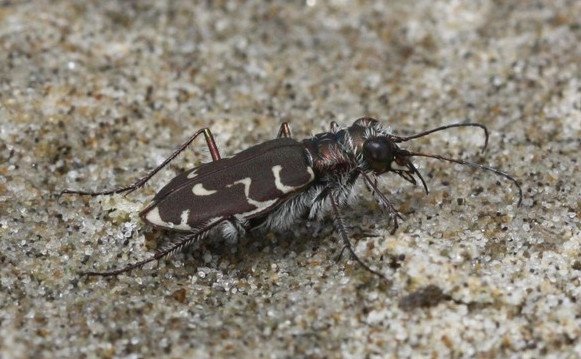Threatened ‘Siuslaw hairy-necked tiger beetle’ on Oregon Coast moves step closer to protection

PORTLAND, Ore. (KTVZ) — In response to litigation brought by the Center for Biological Diversity, the U.S. Fish and Wildlife Service must decide by August 2026 whether to protect the imperiled Siuslaw hairy-necked tiger beetle under the Endangered Species Act.
Here's a news release from the Center about the development:
The tiger beetle once lived on coastal beaches from Northern California to Washington but has disappeared from much of its former range. The most recent surveys found them at only 17 sites in Oregon. In Washington, they’re only known to survive at three sites.
“I’m glad these tiger beetles are getting a shot at protection, but it shouldn’t take a lawsuit to get the Fish and Wildlife Service to do its job and protect a clearly endangered species,” said Quinn Read, Oregon policy director at the Center. “Without the safeguards of the Endangered Species Act, these hairy predatory beetles and their dunes habitat won’t have a fighting chance of survival.”
The species is severely threatened by habitat loss and destruction caused by off-road vehicles, climate change, coastal erosion and trampling by beachgoers. The beetles are also at risk from inbreeding and invasive species.
“These beetles face so many threats and they’re teetering on the brink of extinction,” said Read. “The agencies that manage the few remaining populations must protect them for the sake of biodiversity and future generations.”
The beetle is a fierce predator as both an adult and a larva. Adults are fast and mobile hunters that run across the sand in short bursts or short hopping flights to chase prey. The beetles run so fast that they need to stop after each burst to visually relocate their prey before continuing pursuit.
In 2020, the Center petitioned the Service to protect the beetle under the Endangered Species Act. In 2021, the Service announced that the beetle may qualify for protection under the Act.
In 2022, the Center sued the Fish and Wildlife Service for failing to meet a decision deadline established by the Act. This agreement resolves the Center’s lawsuit and helps ensure the Service stays on track while considering protections for the beetle.